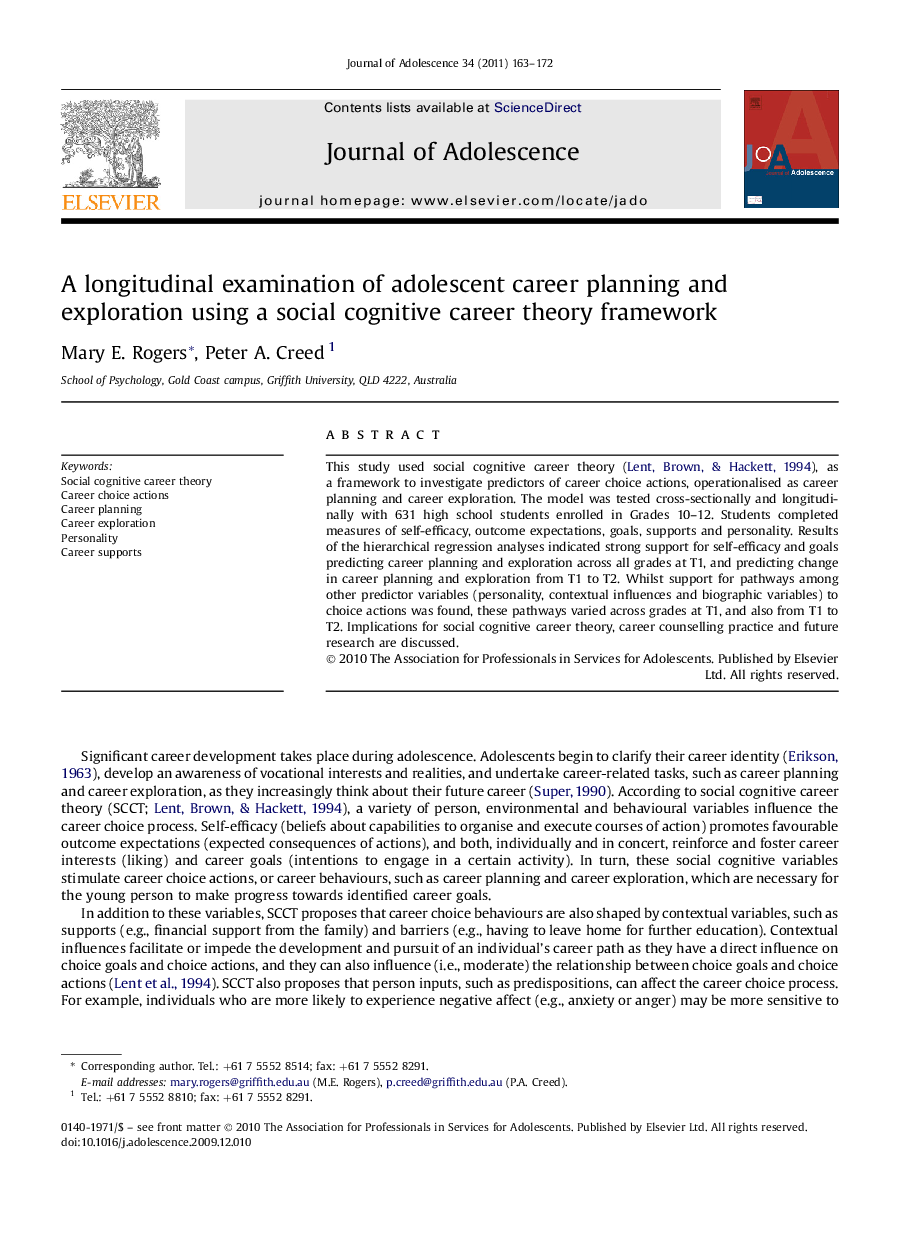| Article ID | Journal | Published Year | Pages | File Type |
|---|---|---|---|---|
| 880950 | Journal of Adolescence | 2011 | 10 Pages |
This study used social cognitive career theory (Lent, Brown, & Hackett, 1994), as a framework to investigate predictors of career choice actions, operationalised as career planning and career exploration. The model was tested cross-sectionally and longitudinally with 631 high school students enrolled in Grades 10–12. Students completed measures of self-efficacy, outcome expectations, goals, supports and personality. Results of the hierarchical regression analyses indicated strong support for self-efficacy and goals predicting career planning and exploration across all grades at T1, and predicting change in career planning and exploration from T1 to T2. Whilst support for pathways among other predictor variables (personality, contextual influences and biographic variables) to choice actions was found, these pathways varied across grades at T1, and also from T1 to T2. Implications for social cognitive career theory, career counselling practice and future research are discussed.
